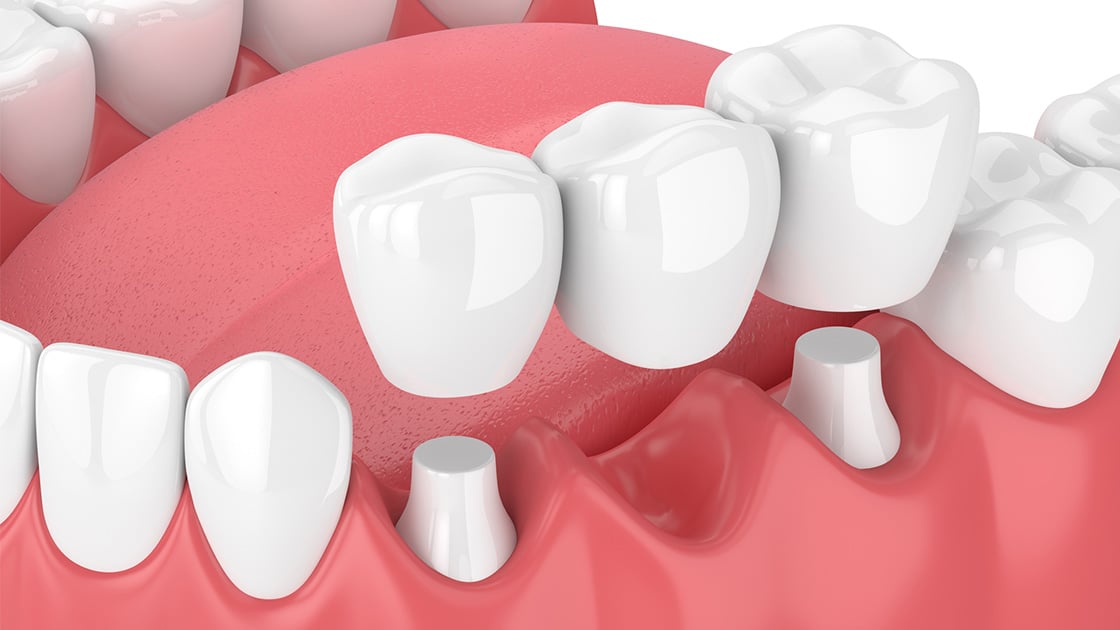
Missing one or more teeth is common for many people.
There are three main types of dental bridges:
Traditional Bridge
This is the most common type of dental bridge. The teeth adjacent to the missing tooth/teeth are prepared for crowns. The fabricated bridge will be placed over these teeth, and the missing teeth will be replaced in between. This type of restoration makes the most sense when both teeth adjacent to the missing tooth or teeth require crowns anyway. If the teeth next to the space do not otherwise require crowns, this can be a very invasive treatment option.
While dental bridges can generally last a long time if well cared for, when they fail, they can often be hard to replace due to the extent of decay underneath by the time a problem is discovered. Also important to understand is that all the teeth involved in the bridge are fixed together, so any future problems with any of the individual teeth often have implications for the entire bridge. Bridges also have increased demands for a patient’s home care. Because the teeth in the bridge are fused together, flossing beneath a bridge requires a different type of floss.
In some cases, bridges can be more esthetic than implant restorations. They can also be favored for situations where a patient may need or want to avoid an implant surgery.
Cantilever Bridge
This type of bridge is similar to a traditional bridge, except that the structure is supported on only one side instead of both sides.
This type of bridge can be more conservative compared to the traditional bridge since it involves fewer teeth. However, it may be more prone to failure with certain patients’ bites. Home care around a bridge like this is much easier since it is not attached on both sides.
Maryland Bridge
This type of bridge is the most conservative. It is supported by a small wing that is adhesively bonded onto the back of existing teeth.
Like the Cantilever bridge, this bridge is affixed on one side only and therefore can be more prone to displacement or fracture. This bridge is often made with little or no modification to the adjacent tooth and can function as a temporary or long-term restoration. In general, this type of restoration is reserved for anterior teeth with limited bite forces.
Contact our office to learn more about your restorative options and achieve the smile you have always wanted.
